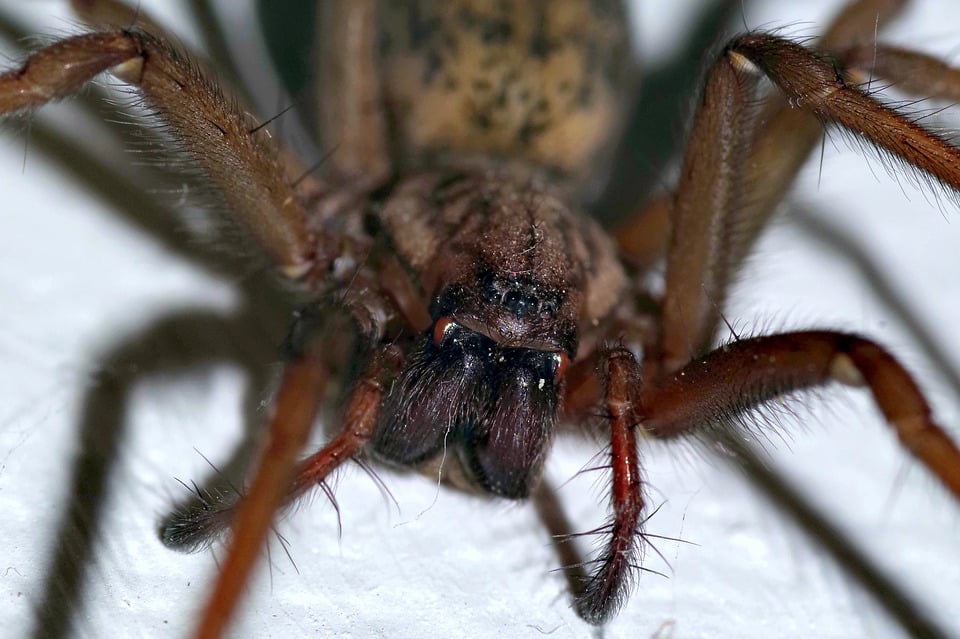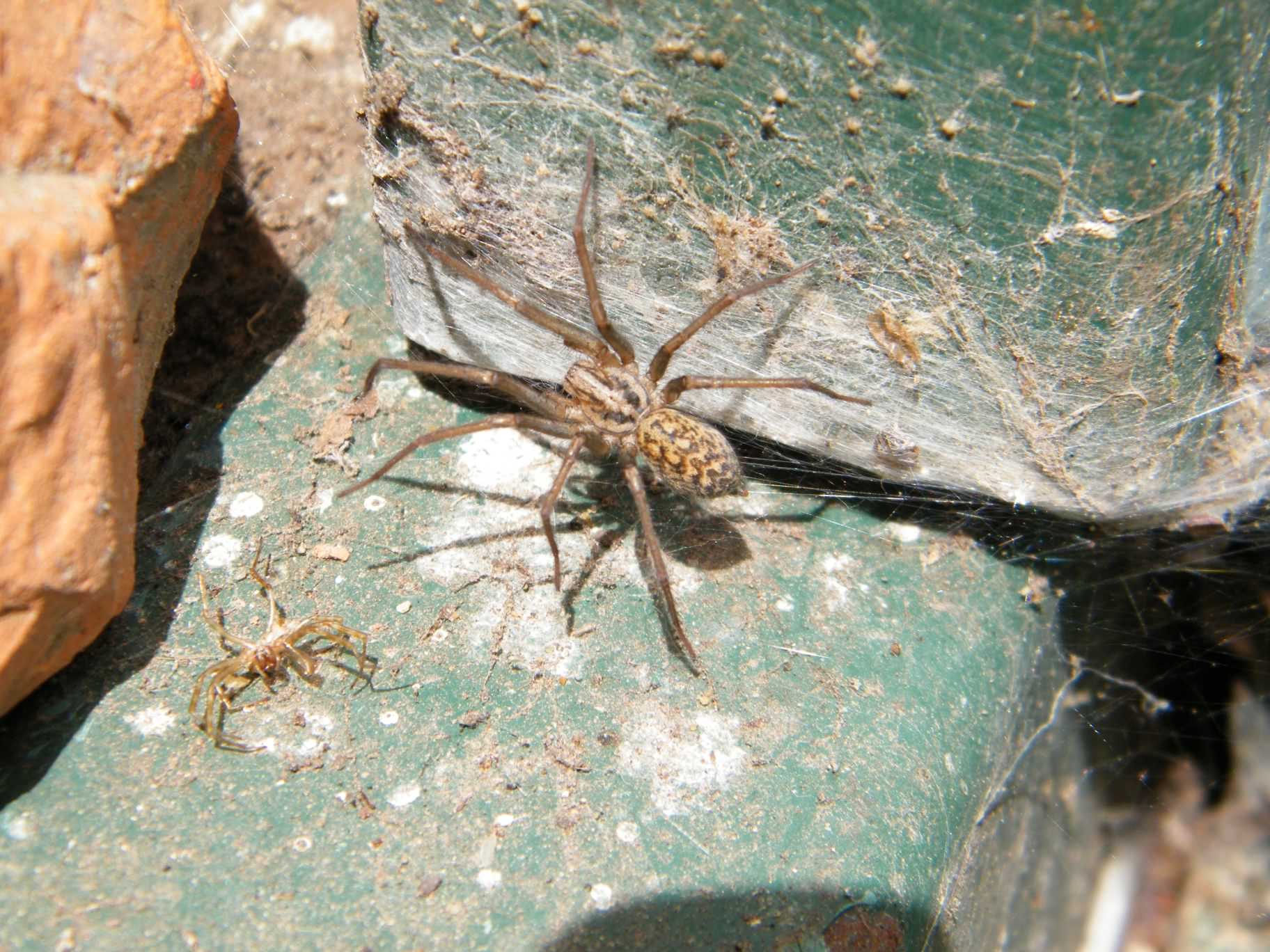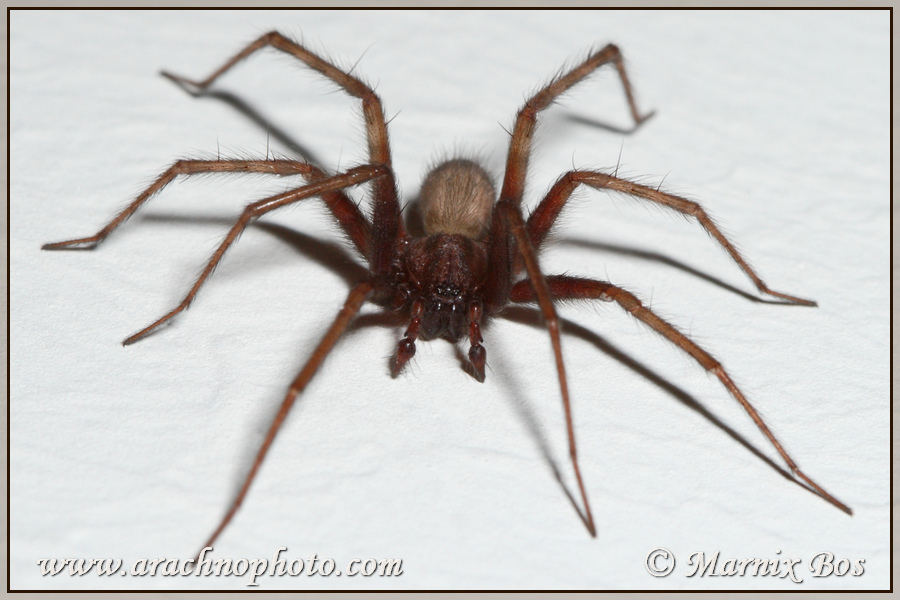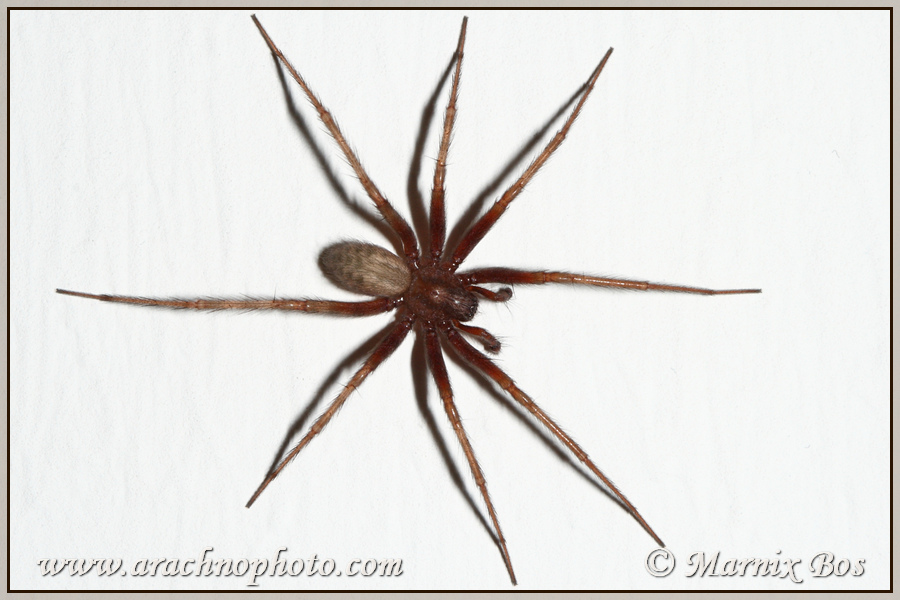Spider Tegenaria domestica
:max_bytes(150000):strip_icc()/__opt__aboutcom__coeus__resources__content_migration__mnn__images__2015__10__tegenaria-domestica-house-spider-6856a6f593cc4b858859179aa2939d32.jpg)
8 Facts About the Misunderstood House Spider
Barn Funnel Weaver Spider (Tegenaria domestica) Detailing the physical features, habits, territorial reach and other identifying qualities of the Barn Funnel Weaver Spider 1/1. Image Credit: Cade S. from OH. Often seen in basements across the world, the dark brown Barn Funnel Weaver is no threat, but it looks like one that might be.

Tegenaria domesticadomestic house spider male Tegenaria domestica
1. Humans and House Spiders Have History Gray cross spiders are commonly seen on man-made objects, yet rarely on vegetation. (Photo: Chris Moody/Shutterstock) Like all modern arthropods, the.

Tegenaria domestica / Domestic house spider Spider, House spider
Tegenaria domestica While not commonly encountered in some areas, this species is found throughout most of the United States, most notably in sheds and barns, around and in the crevices of doors, as well as in the cracks of rock faces and under rocks and boards. Description

Tegenaria Domestica Domestic House Spider In Garden HighRes Stock
T. achaea Barn Funnel Weaver ( Tegenaria domestica) T. pagana T. adomestica T. africana T. agnolettii T. alamto T. angustipalpis T. anhela T. animata T. annae T. annulata T. argaeica T. armigera

Tegenaria domestica / Domestic house spider House spider, Spider
The spider species Tegenaria domestica, commonly known as the barn funnel weaver in North America and the domestic house spider in Europe, is a member of the funnel-web family Agelenidae . Distribution and habitat Domestic house spiders range nearly worldwide.

Spider Tegenaria domestica
The spider species Tegenaria domestica, commonly known as the barn funnel weaver in North America and the domestic house spider in Europe, is a member of the funnel-web family Agelenidae and a close relative of the hobo spider. (Source: Wikipedia, '', http://en.wikipedia.org/wiki/Tegenaria_domestica, CC BY-SA 3.0 .

Terrible Spider Arachnophobia Tegenaria Domestica12 Inch BY 18 Inch
Summary 2 The spider species Tegenaria domestica, commonly known as the barn funnel weaver in North America and the domestic house spider in Europe, is a member of the funnel-web family Agelenidae and a close relative of the hobo spider. Domestic house spiders range worldwide from as north as Sweden to as south as Greece in Europe and from as north as Maritime Canada to as south as Louisiana.

European House Spider Tegenaria domestica, species information page
They range in size from the relatively small Tegenaria domestica to the quite large Tegenaria parietina, which can reach a leg span of 120mm (5 inches) in the adult male. Their sheet-like webs are usually built in garages, sheds, loft spaces and cavity walls. They are less likely to be full time occupants of our living areas due to disturbance.

Tegenaria domestica (Barn Funnel Weaver) in Kingston, New York United
Genus Eratigena (four species, synonymized to two, recently transferred from Tegenaria to that genus). how to know the spiders gives these few distinctions: Coras has robust chelicerae and the anterior median eyes usually larger than the anterior laterals. Tegenaria does not have robust chelicerae, anterior median eyes not larger than the.

Tegenaria domestica (Clerck, 1757) ArachnoPhoto
Tegenaria is a genus of fast-running funnel weavers that occupy much of the Northern Hemisphere except for Japan and Indonesia.It was first described by Pierre André Latreille in 1804, though many of its species have been moved elsewhere. The majority of these were moved to Eratigena, including the giant house spider (Eratigena atrica) and the hobo spider (Eratigena agrestis).

Tegenaria Domestica The Domestic Spider CGTrader
Domestic House Spider Scientific Name: Tegenaria domestica All about the Domestic House Spider Several species of the House Spider exist, but can generally be placed in two categories: the Domestic House Spider or Giant House Spider.

Tegenaria domestica ArachnoPhoto Spiders of Europe
Tegenaria domestica is an introduced species, now widely distributed throughout North America. It is sometimes called the "barn funnel weaver" and in Europe may be known simply as the "house spider" due to its ubiquitous presence in buildings.

Ragged Robin's Nature Notes House Spider Tegenaria spp
Genus Tegenaria Species domestica (Barn Funnel Weaver) Other Common Names Common House Spider (in the Pacific Northwest), Barn Funnel Weaving Spider, Drain Spider (becomes stuck in sinks and can't crawl out), Lesser European House Spider Pronunciation Te-je-NAR-ee-ah doe-MES-tic-a (te"j [schwa]-nar'e- [schwa] do·mes'tic·a)

3D model Domestic Spider Tegenaria Domestica VR / AR / lowpoly
Tegenaria domestica (Clerck, 1757) WSC LSID urn:lsid:nmbe.ch:spidersp:021218 Key to genera | Key to species Description Dorsal tibial apophysis larger than lateral one. Epigyne with pointed lateral parts reaching beyond median part. Prosoma yellow-brown, with broad, dark margin as well as dark lines.
21stcenturynaturalist Something Worse Than Its Bite
Tegeneria domestica (Common House Spider), body size up to 10mm Eratigena atrica body size up to 18mm Eratigena duellica (Cobweb Spider), body size up to 18mm Tegeneria parietina (Cardinal Spider), body size up to 20mm Eratigena saeva, body size up to 18mm

Male House Spider {Tegenaria domestica} Alex Hyde
funnel weaver spiders, with Tegenaria domestica the single most common species collected. Tegenaria domestica (aka "barn funnel weaver") is probably the most widely distributed species within Colorado, although it is native to Europe. Other funnel weavers common along the Front Range and West Slope are Agelenopsis oklahoma and Hololena hola.